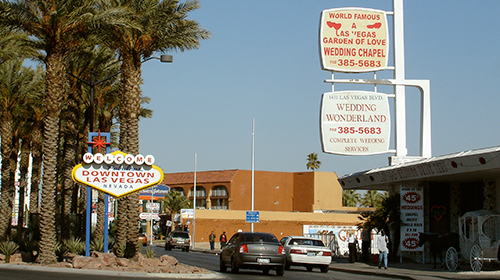
There are currently 32 states and counting that have marriage equality. This is up from 12 states before we helped Edie Windsor strike down the Defense of Marriage Act in the Supreme Court last June.
In the states where gay couples have just begun to marry, as in other states that have gained marriage equality over the last 10 years, most government officials and businesses – regardless of their personal beliefs – have no problem following the law.
At the same time, we're hearing stories of a small number of objectors who want to refuse service to gay couples based on their religious beliefs.
These situations aren't all the same.
On the one hand, we have ministers and churches. Religious leaders and institutions can choose whom to marry in a religious ceremony.
Let's take the example of an Orthodox Jewish rabbi who performs religious ceremonies for other Jews. If two women ask him to perform their wedding ceremony, he has a right to say no because performing that marriage is against his religious beliefs – the same way he's allowed to decline business when one of the partners isn't Jewish. That's true even if he charges a fee for his religious service.
However, let's say this rabbi, or a Las Vegas wedding officiant, owns a business to perform nonreligious ceremonies. Once a business offers nonreligious services to the public, that business is required to follow the rules that apply to all other businesses open to the public, including anti-discrimination laws.
Providing wedding services, including services related to a wedding, doesn't mean a business owner is endorsing anyone's marriage, or agreeing with the customer. It simply means they are providing services to the public.
When a business offers general wedding services to the public, like the wedding chapels in Las Vegas, they cannot refuse service just because of who the customer is. And in North Carolina, we are hearing calls to allow government officials to not obey the law and pick and choose who to serve, while acting in their official roles as government workers.
That's not religious liberty, that's discrimination.
We saw extraordinarily broad legislation introduced earlier this year in states like Kansas, South Dakota and Tennessee, that would not only have allowed any person to refuse to provide services related to weddings of gay couples, but also to refuse to treat those marriages as valid at any time. That's wrong, and unworkable. That's why these and similar legislative efforts were resoundingly rejected, including in Arizona where the governor vetoed the bill after receiving pushback from businesses, religious leaders, and fellow Republicans.
Religious freedom is a fundamental American value, one which ACLU has staunchly defended for the past 96 years. We are all entitled to our religious beliefs, but this doesn't give anyone the right to harm other people.
Learn more about religious discrimination and other civil liberties issues: Sign up for breaking news alerts, follow us on Twitter, and like us on Facebook.
Stay informed
Sign up to be the first to hear about how to take action.
By completing this form, I agree to receive occasional emails per the terms of the ACLU's privacy statement.
By completing this form, I agree to receive occasional emails per the terms of the ACLU's privacy statement.

